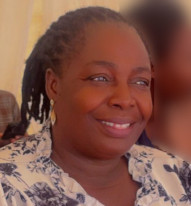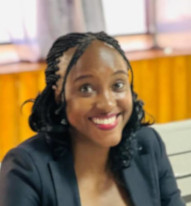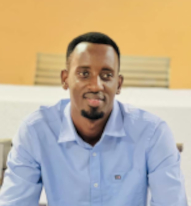ABOUT THE DEPARTMENT
The Tourism Management Department
The Department of Tourism Management started in 2022. It is one of the three departments that form the Faculty of Tourism, Hospitality and Languages (FTHL). We currently run one academic programme, Bachelor of Travel and Tourism Management (BTTM). Our students on the BTTM programme study for three years. At the present, there are 800 students on this programme, constituting about 65% of the student population in the FTHL.
The Department has category A certification from the Directorate of Industrial Training (DIT). We run a number of short courses which are assessed and certified by DIT. These short courses are attended by our students, and are also open to non-students who are interested in acquiring vocational skills.
- Location
The Department is housed in the former MUBS Guest House, MUBS main Campus, Nakawa.
1.2 Vision Statement
To be the leading provider of competitive training and education in tourism management in Uganda
- Mission Statement
To promote and develop tourism education, research and training for socio-economic transformation of Uganda.
- Strategic Goals
- To provide tourism education and training that matches the evolving needs of the tourism industry.
- To conduct research and influence practice through mutually beneficial public-private partnerships and community engagements
- To attract, develop and retain competent academic staff
- Core Values
- Integrity and Ethics. We commit to deal with each other and with our stakeholders with the highest level of trust, openness, understanding and respect.
- Accountability. The Department takes pride in serving the needs of our students and will always serve them in a professional, responsible and accountable manner. We shall always put student interests above personal interest.
- Professionalism. We always execute our tasks and produce our outputs to the best of our ability, with a focus on continuously improving quality and professional development.
- In order to fully execute our mandate, we require collaboration and contributions of other key stakeholders including the tourism private sector, the public sector, development partners, parents, and other training institutions. We commit to consult and work with other stakeholders and engage them into partnerships for effective service delivery.
- Each member of staff of the Department has a unique role to play in the success of our department. We commit to value each staff’s initiative, innovation and we will encourage, support and involve staff in the processes through which we make decisions. The principles of collective responsibility and inclusiveness shall prevail.
- Excellent customer service. We always strive to uphold excellent customer service to both the internal and external customers. We believe that a happy internal customer will always make the external customer happy.
- Our Academic Programmes
- Bachelor of Travel and Tourism (BTTM) Programme
At the present, The Department runs only one academic Programme, The Bachelor of Travel and Tourism Management. This is a three-year study Programme. The programme has been running at MUBS since 2007, and has grown from 15 students in 2007 to 800 in 2024. More than 90% of the BTTM graduates are absorbed into the tourism industry, with several becoming entrepreneurs, creating jobs for others. All courses on the programme are grounded in requisite knowledge and skills in the tourism industry.
Why Study Bachelor Travel and Tourism Management
If you are looking for a programme to pursue, BTTM should be a top choice. First, Uganda’s tourism industry is fairly new, with vast opportunities for growth. The Uganda Vision 2040 describes tourism as “an opportunity that must be exploited for social economic transformation of Uganda”. A vast majority of tourism resources have remained in potential form, creating room for new actors to exploit. In the period 2000 to 2019, Uganda’s tourism sector grew at average of 20% per annum, generating up to US$1.5billion in 2019 and creating over 670,000 jobs. To date, tourism contributes half of Uganda’s service exports.
Tourism has the potential to contribute significantly to socio-economic development, create sustainable livelihoods and help protect the country’s rich natural resources and cultural heritage for Uganda. Generally, tourism employs young people below 35 years. To thrive in this industry, young people need specialised knowledge and skills that can only be acquired through focused training and education. This is because the core tourism product is the experience offered to the tourist before, during and after visiting a destination.
Offering a memorable tourist experience requires specialised knowledge in areas such as tour operations, tour guiding, attractions management, travel management, destination management, product development, tourism marketing, entrepreneurship development, tourism planning and conservation among others. These are all areas that are covered in the BTTM programme. We also understand that tourism is business, so we also teach you a core set of skills with business education. When you study BTTM, you are unique, highly professional with self-drive and positive attitude towards work. In part, this is because during your stay at MUBS, we engage in several activities such as study tours, guest lectures, tourism students’ conferences, internship and short course training
BTTM Programme Objectives
The overall objective of the BTTM programme is to provide students with knowledge, skills and appropriate attitudes in tourism and travel management in order to enable them to effectively participate in the development of tourism and travel businesses to exploit fully the benefits that Tourism and Travel Industry offers.
Specific Objectives of the BTTM Programme
- To enable students to set up and run successful businesses in the Travel and Tourism sector
- Provide students with comprehensive managerial skills in the area of Travel and Tourism
- Present tools and techniques which can enable students to plan, design, and organize Travel and Tourism products the local and international markets
- To equip students with knowledge and skills to enable them take up leadership functions in any area of Travel and Tourism business
- To give students a sound and extensive basis for the study of tourism and travel, by developing relevant knowledge, understanding of tourism and travel and transferable skills
- To provide students with a range of personal attributes relevant to the world beyond higher education, to enable them to engage in lifelong learning, to consider ethics and values, and to contribute to the wider community.
Who can Join Bachelor of Travel and Tourism Management?
Admission to the programme follows the guidelines set by Makerere University. You may consult us further on these guidelines. However, generally, the programme is open to A-Level candidates through direct entry; holders of a Diploma from a recognized tertiary institution or its equivalent (such as DIT certification); and holders of any relevant professional qualification.
- Short training programmes at the Department of Tourism Management
The Department is working closely with DIT and several tourism industry practitioners to run a number of short training programmes. These range between one month and three months, and are job specific. Once you pursue any of these short training programmes, you will finish when you are ready for the world of work. We offer these programmes at different levels, from workman’s pass to level four. The following are the short training programmes that we are currently running:
| Training area | Specific jobs you can do on completion |
| 1. Certificate in Air ticketing and Reservations management | Air ticketing Officer; Hotel reservations officer; Ticketing officer (events, public transport, etc) |
| 2. Certificate in Tour guiding | Tourist guide; Tour product translator |
| 3. Certificate in Tour operations management | Tour consultant; Tour operator |
| 4. Certificate in Hotel Front office operations | Reservation’s officer; Receptionist; Guest relations officer; Door man; Usher for events |
| 5. Certificate in House management | Room attendant; Linen Keeper; Laundry attendant; Public area attendant; Dry cleaner , laundry manager |
| 6. Certificate in Campsite planning and management | Camp site attendant; Camp site manager |
| 7. Certificate in Food and beverage services | Barrister; Bar attendant; Mixologist; Waiter/waitress |
| 8. Certificate in Hotel General Management | Hotel General Manager |
| 9. Certificate in events planning and management | Events planner; events manager; usher; exhibition attendant |
In addition to the core technical skills that we offer, we also add financial literacy; entrepreneurial mindset; marketing and building market linkages and organisation development.
Mode of training
Each short course has three main elements: classroom teaching which focuses on theory; practical classes where you are placed in a work environment; and handholding and coaching (for those who choose self-employment). We also have partners that can offer free operation space and equipment for the entrepreneurs who train with us.
When do we run the short courses?
We have a calendar that we follow. Please check with the Department (or our social media outlets) to learn about when specific short training programmes are run.
Celestine Katongole (Dr)
Senior Lecturer/Head
Prof. Peter U.C Dieke
Adjunct Professor
Prof. Jacqueline Cheptepkeny Korir
Adjunct Professor
Aporu John Paul
Lecturer

Joy Birungi
Administrator
Immaculate Mary Mbabazi
Lecturer
Julius Jjuuko
Lecturer
David Nabakira Kaggwa
Lecturer

Jackie Nakabuga
Teaching Assistant
Joseph Okello
Teaching Assistant

Dickson Bamwesigye
Teaching Assistant
Asuman Kabuzi
Teaching Assistant
Benjamin Abazimana
Teaching Assistant
James Mutabazi
Teaching Assistant
